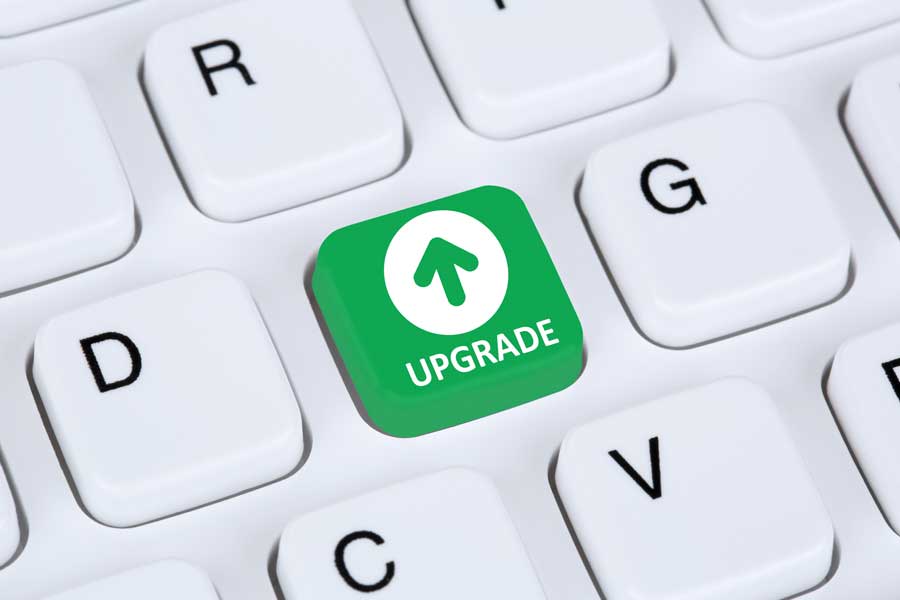Nowadays it is a must know how to improve the performances with our Opencart Website. Core web vitals are very important for website performance and search ranking.
While OpenCart offers flexibility and powerful e-commerce capabilities, it also requires regular performance optimization to ensure your store operates efficiently. Website speed plays a vital role in user experience, search engine ranking, and overall conversions. If your OpenCart site is sluggish, potential customers may leave before making a purchase.
So, how can you improve your OpenCart website’s performance?
Let’s explore a comprehensive guide to help you optimize it for speed and efficiency.
Why Performance Matters for OpenCart?
Website performance directly impacts your business in several ways:
- User Experience: A fast website enhances customer satisfaction, encouraging them to browse more and make purchases.
- SEO Rankings: Search engines like Google prioritize fast websites in search results, so optimizing speed can improve your rankings.
- Bounce Rates: A slow website increases bounce rates, where users leave without exploring, leading to lost potential sales.
- Conversion Rates: Studies have shown that faster websites have higher conversion rates. Even a one-second delay in loading time can decrease conversions by 7%.
Clearly, performance optimization should be at the top of your priorities when managing an OpenCart store.
Step-by-Step Guide to Improving OpenCart Website Performance
Step 1. Optimize Hosting Environment
The foundation of a fast OpenCart site starts with choosing the right hosting.
Choose the Right Hosting Provider
A shared hosting plan may be cost-effective, but it often lacks the resources to handle growing traffic. Invest in a reliable hosting provider that specializes in e-commerce platforms like OpenCart.
Upgrade to VPS or Dedicated Hosting
As your store grows, consider upgrading to a Virtual Private Server (VPS) or a dedicated server. These options provide more control, resources, and speed than shared hosting environments.
Use Content Delivery Network (CDN) Services
A CDN helps by distributing your website’s static content (like images and scripts) across multiple servers worldwide. This reduces the distance between users and your server, making your website load faster globally.
Step 2. Optimize Images and Media
The second aspect is about your media files, here ill give you tree advice to improve the performance from your Opencart
Compress Images Without Losing Quality
Large image files can dramatically slow down a website. Tools like TinyPNG or PhotoShop can compress images without sacrificing quality, reducing load times significantly.
Use Lazy Loading for Faster Image Delivery
Lazy loading ensures that images only load when they appear in the user’s viewport. This way, the site initially loads faster, and the rest of the images load as the user scrolls.
Serve Images in Next-Gen Formats like WebP
WebP images are smaller in size compared to JPEG or PNG. By serving images in this format, you can improve loading speeds without compromising visual quality.
Step 3. Utilize Caching for Faster Load Times
Caching files implies more speed on your ecommerce, and more speed will allow you more satisfied customers.
Implement Browser Caching
Browser caching lets your browser save files you visit often. This means you don’t have to download them again. This speeds up repeat visits to your site.
Use OpenCart’s Built-in Caching Options
OpenCart has built-in caching that stores database queries and configurations. Make sure you enable these options in the settings.
Install Additional Caching Extensions
Consider installing third-party caching extensions like NitroPack or VQMod, which offer more robust caching solutions tailored to OpenCart.
Step 4. Minify and Combine CSS, JavaScript, and HTML Files
Minification Techniques for Better Performance
Minifying CSS, JavaScript, and HTML removes extra spaces and comments to make files smaller.
Combining Files to Reduce HTTP Requests
Instead of loading multiple CSS or JavaScript files, combine them into a single file to minimize HTTP requests. Fewer requests mean faster load times.
Step 5. Database Optimization
An unoredeing database could be a madness. Just imagine that your closet is totally mess and you need to find your favorites socks for sllep, is frustating rigth? That is the same experience for your website performance when one user need someting in your website and the hosting not be respond on time.
Regularly Clean Up Your Database
As your store grows, unnecessary data like expired sessions, abandoned carts, and logs can accumulate. Regularly clean up your database to keep it clean and fast.
Use Database Caching
Database caching stores the result of database queries, reducing the need to process the same query repeatedly, which can significantly speed up your site.
Optimize SQL Queries
Ensure your SQL queries are optimized. Complex or redundant queries can slow down your site. Use database optimization tools or consult a developer for advanced query optimization.
Step 6. Use GZIP Compression
How GZIP Reduces Data Size
GZIP compression reduces the size of your HTML, CSS, and JavaScript files, allowing them to load faster. GZIP essentially compresses files on the server and sends them to the user’s browser in smaller sizes.
Enabling GZIP Compression in OpenCart
Most hosting providers support GZIP, and you can enable it through OpenCart’s admin settings or your server’s control panel.
Step 7. Optimize Extensions and Modules
Uninstall Unnecessary Extensions
Every extension adds extra code that can slow down your site. Remove any unused or unnecessary extensions to streamline your site’s performance.
Choose Lightweight and Efficient Extensions
Not all extensions are created equal. Opt for lightweight, well-coded extensions that don’t bloat your website’s codebase.
Keep Extensions Updated

Outdated extensions can not only slow down your site but also introduce security vulnerabilities. Regularly update your extensions to the latest versions for optimal performance.
Step 8. Optimize Your Theme
Choose a Lightweight, Fast Theme
Some themes are loaded with features you may not need, which can slow down your site. Choose a theme designed for performance, with clean, efficient code.
Use Theme-Specific Performance Settings
Many themes come with built-in performance settings like lazy loading or script deferring. Explore these options to maximize your site’s performance.
Step 9. Enable Lazy Loading for Faster Content Delivery
Benefits of Lazy Loading on OpenCart
Lazy loading delays the loading of images and other media until the user scrolls down to that part of the page. This improves the perceived load time and reduces the initial page size.
Implement Lazy Loading for Products and Images
There are several OpenCart extensions that allow you to implement lazy loading for product listings and images. This ensures a smoother and faster user experience.
Step 10. Monitor and Analyze Performance
Use Google PageSpeed Insights for OpenCart
Google PageSpeed Insights is a valuable tool for analyzing the speed of your website. It provides recommendations to improve your site’s performance.
Tools to Continuously Monitor Website Speed
Use tools like GTMetrix or Pingdom to monitor your site’s speed regularly. These tools offer insights into what’s slowing down your site and suggest ways to improve it
Regular Performance Audits
Make a habit of performing regular audits to catch performance bottlenecks early and fix them before they impact your business.
Additional Tips for Advanced Users
Implement Varnish Cache
Varnish is a high-performance caching solution that accelerates content delivery. Although it requires some technical knowledge to implement, it can significantly speed up your site.
Use HTTP/2 for Improved Data Transfer
HTTP/2 offers better speed by allowing multiple requests to be sent in a single connection. Ask your hosting provider to enable HTTP/2 for your OpenCart website.
Conclusion
Effective OpenCart optimization is essential for delivering a fast, enjoyable shopping experience that keeps customers coming back. From hosting and caching to image optimization and database management, there are many ways to improve your site’s speed. Remember, opencart optimization isn’t a one-time task; regularly monitor and tweak your site to ensure it continues to perform well as your business grows.
FAQs
1. How can I measure the performance of my OpenCart site?
– You can use tools like Google PageSpeed Insights, GTMetrix, or Pingdom to measure your site’s performance and identify areas for improvement.
2. Does the choice of hosting affect OpenCart speed?
– Yes, your hosting provider plays a crucial role in performance. Upgrading to VPS or dedicated hosting can significantly improve speed.
3. What is lazy loading, and why is it important for OpenCart?
– Lazy loading delays the loading of images until they are needed, reducing initial load times and improving user experience.
4. How do caching extensions improve OpenCart performance?
– Caching extensions store frequently accessed data, reducing server load and speeding up page delivery.
5. Can too many extensions slow down my OpenCart site?
– Yes, every extension adds code, and too many can bloat your site, slowing it down. Only install necessary, lightweight extensions.



